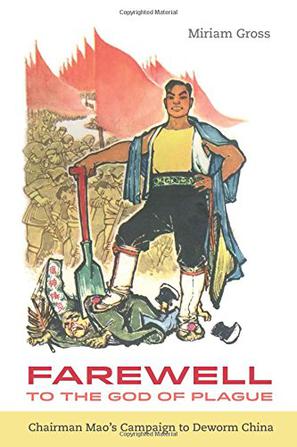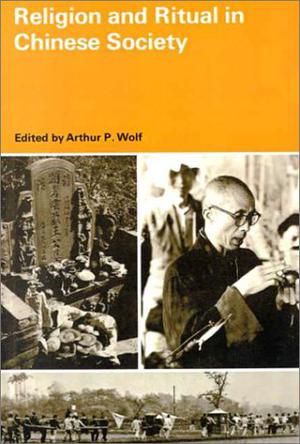-

Farewell to the God of Plague
Farewell to the God of Plague reassesses the celebrated Maoist health care model through the lens of Mao’s famous campaign against snail fever. Using newly available archives, Miriam Gross documents how economic, political, and cultural realities led to grassroots resistance. Nonetheless, the campaign triumphed, but not because of its touted mass-prevention campaign. Instead, success came from its unacknowledged treatment arm, carried out jointly by banished urban doctors and rural educated youth. More broadly, the book reconsiders the relationship between science and political control during the ostensibly antiscientific Maoist era, discovering the important role of “grassroots science” in regime legitimation and Party control in rural areas. -

发现中国
本书原是德国知名汉学家卜松山(Karl-Heinz Pohl,来自马克思的故乡德国特里尔)为德语区读者撰写的一 本中国文化导入读本,该书在德国受到极大欢迎,一再增订出版。 在本书中,作者立足传统与现代,揭示了中德民众看待对方国家的不同,重点介绍了中国的传统文化与价值体系(包括语言、文字及哲学思想史)、国情地貌、历史(主要是自1840年以来的中国近代史)及现代政治状况等。 作为一本饶有趣味的导入读本,此书的中文译作,为读者打开了一扇“他者”看中国的窗子,或许能为中国的海外汉学研究者与爱好者拓宽研究视角,或许也能为普通中国民众对深受影响却疏于察觉的自身传统文化(尤其是哲学传统)进行梳理与佐证提供一种可能。 -

Reinventing Chinese Tradition
The final destination of the Long March and center of the Chinese Communist Party's red bases, Yan'an acquired mythical status during the Maoist era. Though the city's significance as an emblem of revolutionary heroism has faded, today's Chinese still glorify Yan'an as a sanctuary for ancient cultural traditions. Ka-ming Wu's ethnographic account of contemporary Yan'an documents how people have reworked the revival of three rural practices--paper-cutting, folk storytelling, and spirit cults--within (and beyond) the socialist legacy. Moving beyond dominant views of Yan'an folk culture as a tool of revolution or object of market reform, Wu reveals how cultural traditions become battlegrounds where conflicts among the state, market forces, and intellectuals in search of an authentic China play out. At the same time, she shows these emerging new dynamics in the light of the ways rural residents make sense of rapid social change. Alive with details, Reinventing Chinese Tradition is an in-depth, eye-opening study of an evolving culture and society within contemporary China. "A wonderful balance of ethnography and theoretical argument. Written in an engaging and accessible style and each chapter has much to offer in terms of theoretical insight and argument. It fairly sparkles intellectually."--Ann Anagnost, coeditor of Global Futures in East Asia: Youth, Nation, and the New Economy in Uncertain Times "I have read nothing like it in the field of Chinese studies. Original, insightful, and thoughtful, this book will be a must-read for a wide audience."--Lisa Rofel, author of Desiring China: Experiments in Neoliberalism, Sexuality, and Public Culture "Drawing on years of deep and prolonged immersion in the lives of village residents of the North China plain, Ka-ming Wu not only brilliantly elucidates scholarly dialogues about domestic and global debates, but through lively ethnography allows readers to appreciate the dynamic interchange between several generations of village performers, artists, and their audiences."--Deborah S. Davis, coeditor of Creating Wealth and Poverty in Postsocialist China -

The Scholar and the State
http://www.washington.edu/uwpress/search/books/GELOUT.html In imperial China, intellectuals devoted years of their lives to passing rigorous examinations in order to obtain a civil service position in the state bureaucracy. This traditional employment of the literati class conferred social power and moral legitimacy, but changing social and political circumstances in the Ming (1368-1644) and Qing (1644-1911) periods forced many to seek alternative careers. Politically engaged but excluded from their traditional bureaucratic roles, creative writers authored critiques of state power in the form of fiction written in the vernacular language. In this study, Liangyan Ge examines the novels Romance of the Three Kingdoms, The Scholars, Dream of the Red Chamber (also known as Story of the Stone), and a number of erotic pieces, showing that as the literati class grappled with its own increasing marginalization, its fiction reassessed the assumption that intellectuals' proper role was to serve state interests and began to imagine possibilities for a new political order. "A significant contribution to our understanding of late imperial Chinese culture. This is the first book to put the individual novels [discussed here] into a very specific political context." -Margaret Wan, University of Utah -

Shanghai Gone
Shanghai has been demolished and rebuilt into a gleaming megacity in recent decades, now ranking with New York and London as a hub of global finance. But that transformation has come at a grave human cost. This compelling book is the first to explore in detail the stories of neighborhoods destroyed, families uprooted, and life patterns lost to make way for the new Shanghai. Here we find the holdouts and protesters, men and women who have stubbornly resisted demolition and demanded justice. Qin Shao follows a reticent kindergarten teacher turned diehard petitioner; a descendant of gangsters and squatters who has held out in his home for a decade and become an amateur lawyer for other evictees; a Chinese Muslim who has struggled to recover his ancestral home in Xintiandi, an infamous site of gentrification dominated by a well-connected Hong Kong real estate tycoon. Highlighting the wrenching changes spawned by China’s reform era, Shao vividly portrays the relentless pursuit of growth and profit by the combined forces of corrupt power and money, the personal wreckage it has left behind, and the enduring human spirit it has unleashed. -

Religion and Ritual in Chinese Society
An outstanding compendium of fourteen papers, almost exclusively based on recent anthropological field research in Hong Kong and Taiwan on the diverse Confucian, Buddhist, and Taoist beliefs and practices of the Chinese peasant ... This collection is of great value in explicating the structure of the supernatural world as seen by the Chinese peasant, its similarity to the formal imperial bureaucracy, and the effect of economic conditions on the carrying out of related practices.'Harvard Journal of Asiatic Studies This volume examines aspects of religion and ritual in China. Various topics are covered including the sociology of Chinese religion, religion and ritual in Lukang, religious organization in the history of a Taiwanese town, and village alliance temples in Hong Kong.